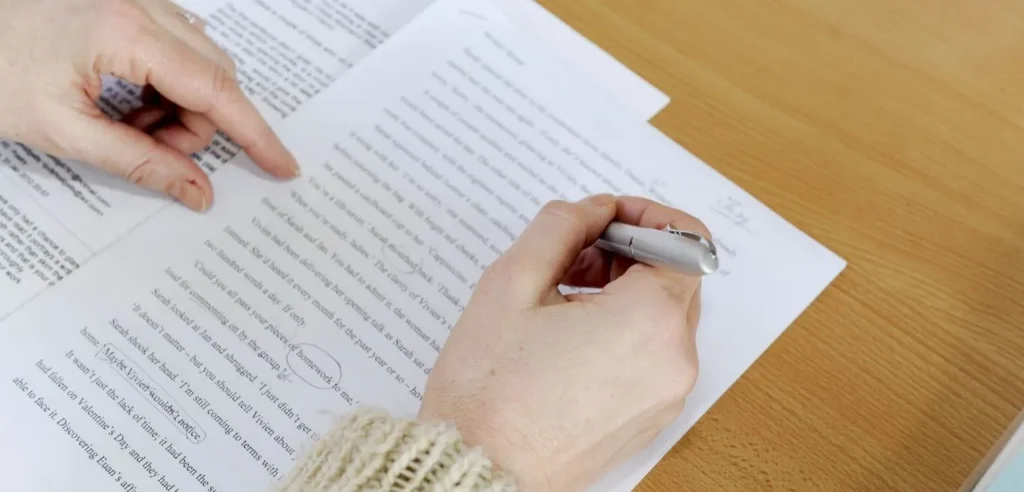Congratulations! Imagine the excitement when you receive an acceptance letter from your dream university for your bachelor’s or master’s program. This life-changing opportunity is possible — but it often depends on one key document: your Statement of Purpose (SOP).
Your SOP is one of the most critical documents of your university application. It doesn’t just showcase your academic achievements. It also reflects your goals, motivations, and personality. A well-structured and compelling SOP helps you stand out from other applicants by demonstrating your passion, clarity of purpose, and readiness for the challenges ahead.
Stay connected with Right Turn, your trusted education consultancy, to learn how to write an outstanding Statement of Purpose that can impress admissions committees and increase your chances of getting into your dream university.
What is a Statement of Purpose (SOP)?
A Statement of Purpose (SOP) is a personal essay submitted as part of your university or visa application. It describes your academic background, career goals, and reasons for choosing a specific program and institution.
An SOP helps the admissions committee understand:
- Who you are beyond grades and test scores
- What motivates you academically and professionally
- What skills and achievements define your potential
- How the program aligns with your future aspirations
Why is the Statement of Purpose Important?
Your Statement of Purpose plays a decisive role in the success of your application. It provides a complete picture of your personality, ambition, and suitability for the program. A strong SOP also highlights your communication skills, clarity of thought, and commitment to your goals.
Key Components of a Strong SOP
To craft an impactful SOP, make sure to include:
- Personal and academic background
- Professional experience (internships or jobs)
- Future career ambitions
- Reasons for choosing the specific institution
- Interest in your chosen field
- Extracurricular activities and hobbies
Important Precautions When Writing Your SOP
A powerful SOP must be clear, concise, and original. Below are the three most important precautions to ensure your SOP stands out.
1. Avoid Plagiarism
Write your SOP in your own words. Avoid copying content or using AI-generated tools such as ChatGPT or Bard. Admissions teams value authenticity and want to hear your unique story, written in your voice.
2. Be Clear and Concise
Thousands of students apply every year, and admissions officers have limited time. Keep your SOP relevant, to the point, and aligned with your goals.
Tips:
- Avoid unnecessary details
- Maintain a simple and natural tone
- Keep sentences straightforward and meaningful
3. Stick to Word Limits
Most universities recommend an SOP of 500–1,000 words. As per common academic standards:
- Keep it around one page
- Use a readable font (11–12 pt)
- Maintain proper margins and spacing
If your draft exceeds the limit, edit it carefully to remove redundancy and improve clarity.
Winning Tips to Write a Compelling Statement of Purpose
Follow these five proven strategies to write an SOP that captures attention and makes a lasting impression.

1. Brainstorm Your Ideas
Think of your SOP as your story — your chance to directly address the admissions committee. Reflect on your life experiences, achievements, and motivations. Ask yourself:
- Why do I want this degree?
- What excites me most about this program?
- How will this degree shape my professional journey?
- How can my past experiences add value to the program?
Your answers will form the foundation of your SOP.
2. Develop an Outline
Organizing your thoughts helps you maintain focus. A simple SOP structure includes:
Introduction:
- Catchy opening line
- Brief overview of your background and motivation
Body:
- Relevant academic or professional experiences
- 2–3 achievements related to your field
- Career goals and program alignment
- Why you chose this institution
Conclusion
- Summarize key points
- Reaffirm enthusiasm and readiness
3. Write the First Draft
With your outline ready, begin drafting your SOP. Focus on storytelling — let your personality and passion shine.
Tips:
- Explain what drives your interest in the field
- Mention specific program features or faculty expertise
- Stay authentic and genuine
4. Edit and Refine
After drafting, review your SOP carefully:
- Follow formatting rules (font, spacing, margins)
- Check for grammar, spelling, and punctuation errors
- Keep it within 500–1,000 words
- Ask a mentor or friend for honest feedback
5. Make a Lasting Impression
Your SOP is your personal brand statement. End with a strong conclusion that highlights:
- Your long-term goals
- Why you are the ideal candidate
- How you can contribute to the university community
(FAQs)
1. Is a Statement of Purpose the same as a cover letter?
No. A Statement of Purpose focuses on your academic and career goals, while a cover letter highlights your suitability for a job or specific role.
2. What should I include in a Statement of Purpose?
Include details about your academic history, work experience, future aspirations, and reasons for choosing the program and institution.
3. What is SOP in a student visa application?
An SOP for a student visa explains your purpose for studying abroad, your educational goals, and how the chosen program supports your career plans
4. What are the five key parts of an SOP?
Introduction
Academic Background
Professional Experience
Career Goals
Why This University
5. What causes an SOP to be rejected?
Unclear or disorganized content
Poor writing quality
Plagiarism or copied text
Lack of clear purpose or direction
6. Why is an SOP required for a visa?
It helps visa officers verify that you are a genuine student with clear academic and professional intentions.
7. What documents are needed for an SOP?
You don’t need special documents to write it, but you should refer to your academic transcripts, certificates, and work experience details.
8. How do I introduce myself in an SOP?
Start with who you are, your academic journey, and what inspired your interest in the program.
9. Can a strong SOP improve my admission chances?
Absolutely! A well-written SOP can significantly strengthen your application by demonstrating your passion, clarity, and fit for the program — even if your academic scores are average.

 Study in Georgia
Study in Georgia Study in UK
Study in UK Study in Albania
Study in Albania Study in Hungary
Study in Hungary Study in Malta
Study in Malta Study in Switzerland
Study in Switzerland Study in Denmark
Study in Denmark Study in Netherlands
Study in Netherlands Study in Spain
Study in Spain Study in Moldova
Study in Moldova Study in Latvia
Study in Latvia Study in Croatia
Study in Croatia Study in Finland
Study in Finland Study in Ireland
Study in Ireland
